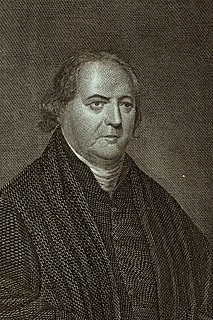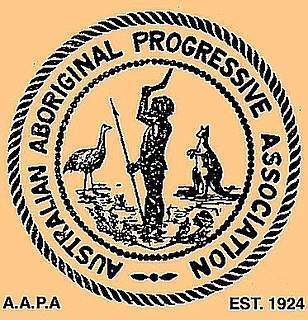Silas Edward Herbert Gill was an English-born Australian Methodist preacher. [1]
Silas Edward Herbert Gill was an English-born Australian Methodist preacher. [1]
Silas Gill was born in East Sussex in England in 1806. His birth date is believed to be 24 December. [1]
Gill married Mercy Catt in June 1826 and moved to Australia in the mid-1830s with four children.
After moving to the Kempsey area in 1859, Gill set up the Methodist Church of Kempsey. He ran it until a Methodist priest came to the area a few years later. [2]
He is also credited with preaching in areas across Northern New South Wales. [1]
He lost all of his possessions in a flood in 1864, but announced he had not lost his faith. [1]
He did all of his religious work for free, and was never paid. [1]
Silas Gill died suddenly on 10 September 1875, aged 68. [1]
The Gill Bridge over the Kempsey River bears his name. [1]
Gill Street, Kempsey is also named after him. [2]

Methodism, also called the Methodist movement, is a group of historically related denominations of Protestant Christianity whose origins, doctrine and practice derive from the life and teachings of John Wesley. George Whitefield and John's brother Charles Wesley were also significant early leaders in the movement. They were named Methodists for "the methodical way in which they carried out their Christian faith". Methodism originated as a revival movement within the 18th-century Church of England and became a separate denomination after Wesley's death. The movement spread throughout the British Empire, the United States, and beyond because of vigorous missionary work, today claiming approximately 80 million adherents worldwide.

John Wesley was an English cleric, theologian, and evangelist who was a leader of a revival movement within the Church of England known as Methodism. The societies he founded became the dominant form of the independent Methodist movement that continues to this day.

Francis Asbury was one of the first two bishops of the Methodist Episcopal Church in the United States. During his 45 years in the colonies and the newly independent United States, he devoted his life to ministry, traveling on horseback and by carriage thousands of miles to those living on the frontier.

Silas Comfort Swallow was a United States Methodist preacher and prohibitionist politician who was a lifelong opponent of slavery.

The Macleay River is a river that spans the Northern Tablelands and Mid North Coast districts of New South Wales, Australia.

The camp meeting is a form of Protestant Christian religious service originating in England and Scotland as an evangelical event in association with the communion season. It was held for worship, preaching and communion on the American frontier during the Second Great Awakening of the early 19th century. Revivals and camp meetings continued to be held by various denominations, and in some areas of the mid-Atlantic, led to the development of seasonal cottages for meetings.

Kempsey is a town in the Mid North Coast region of New South Wales, Australia and is the council seat for Kempsey Shire. It is located roughly 16.5 kilometres inland from the coast of the Pacific Ocean, on the Macleay Valley Way near where the Pacific Highway and the North Coast railway line cross the Macleay River. It is roughly 430 kilometres north of Sydney. As of June 2018 Kempsey had a population of 15,309 (2018).

Kempsey is a village and civil parish in the Malvern Hills District in the county of Worcestershire, England. It is bounded by the River Severn on the west, and the A38 main road runs through it and is about 3 miles (5 km) south of Worcester. The village has a long history. Its name is derived from the Saxon "Kemys' Eye", or the island of Kemys. Kemys was a Saxon chief, whose island lay between marshes and the River Severn. One of the roads in Kempsey, Lyf's Lane, is named after another Saxon chief. The village was recorded in the 11th century Domesday Book as having a value of £7.

Randolph Sinks Foster was an American bishop of the Methodist Episcopal Church, elected in 1872.

Silas Kitto Hocking was a Cornish novelist and Methodist preacher. He is known for his novel for youth called Her Benny (1879), which was a best-seller.
Laurence Coughlan (?-1784?) was an Irish-born itinerant preacher who was active in Newfoundland during the period 1766–1773. Though born a Roman Catholic, ordained and employed as an Anglican, and at one point even ordained by a Greek Orthodox bishop, his true religious affiliation was Methodism, to which he converted in the 1750s. Coughlan is regarded as a founder of the Methodist Church in Newfoundland.
Beroea was an ancient city of the Hellenistic period and Roman Empire now known as Veria in Macedonia, Northern Greece. It is a small city on the eastern side of the Vermio Mountains north of Mount Olympus. The town is mentioned in the Acts of the Apostles as a place in which the apostles Paul, Silas and Timothy preached the Christian Gospel.
The following lists events that happened during 1875 in Australia.
Boston King was a former American slave and Black Loyalist, who gained freedom from the British and settled in Nova Scotia after the American Revolutionary War. He later immigrated to Sierra Leone, where he helped found Freetown and became the first Methodist missionary to African indigenous people.
John George Gough, was one of the founders of the New South Wales Labour Party, initially the Labour Electoral League, the first political Labour movement in Australia. He was also one of Labour's five-member leadership group when the party first made its appearance in the New South Wales parliament in 1891. Representing Young, he was first elected in 1889 to the parliament's lower house as a member of the Protectionist Party, which produced Australia's first two prime ministers, Edmund Barton and Alfred Deakin. From 1891 to 1894 he represented Labour. Proud that his mother was Australian-born, he was a strong nationalist and republican. John Gough's maternal grandmother was half-aboriginal. He is the only one of Labor's founding fathers who has been found to have had aboriginal ancestry.

The organisation of the Methodist Church of Great Britain is based on the principle of connexionalism. This means that British Methodism, from its inception under John Wesley (1703–1791), has always laid strong emphasis on mutual support, in terms of ministry, mission and finance, of one local congregation for another. No singular church community has ever been seen in isolation either from its immediately neighbouring church communities or from the centralised national organisation. Wesley himself journeyed around the country, preaching and establishing local worshipping communities, called "societies", often under lay leadership. Soon these local communities of worshipping Christians formalised their relationships with neighbouring Methodist communities to create "circuits", and the circuits and societies contained within them, were from the very beginning 'connected' to the centre and Methodism's governing body, the annual Conference. Today, societies are better known as local churches, although the concept of a community of worshipping Christians tied to a particular location, and subdivided into smaller cell groups called "classes", remains essentially based on Wesley's societies.
Indo-Fijians or Indian-Fijians are Fijian citizens of Indian descent, including people who trace their ancestry to various regions of the Indian subcontinent. Although Indo-Fijians constituted a majority of Fiji's population from 1956 through the late 1980s, discrimination and the resulting brain drain resulted in them numbering 313,798 (37.6%) out of a total of 827,900 people living in Fiji as of 2007.

Freeborn Garrettson was an American clergyman, and one of the first American-born Methodist preachers. He entered the Methodist ministry in 1775 and travelled extensively to evangelize in several states. He was called Methodism's "Paul Revere". Garrettson was an outspoken abolitionist.

The Australian Aboriginal Progressive Association (AAPA) was an early Indigenous Australian organisation focused on Aboriginal rights, founded in 1924 and based in Sydney, New South Wales (NSW). It ceased operations in 1927. The AAPA is known as the first Aboriginal activist group to unite in Australia. The organisation's membership roster peaked at over 600 AAPA members, with 13 branches and 4 sub branches in NSW.